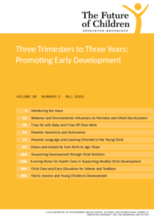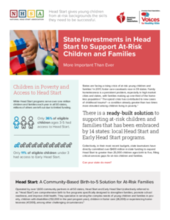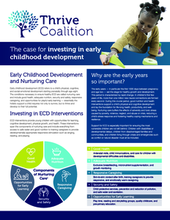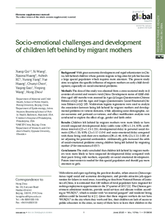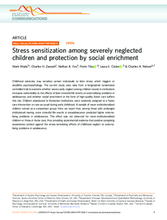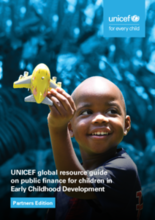Displaying 81 - 90 of 496
This issue of the Future of Children focuses on the first years of life starting with in utero experiences.
This brief from Head Start provides an overview of state funding for Head Start, a collection of comprehensive birth to five programs in the U.S. specifically designed to strengthen families, promote school readiness, and improve child health.
This chapter from 'Addressing Multicultural Needs in School Guidance and Counseling' focuses on the psychological and social issues that orphans and other vulnerable children experience when their parents are no longer alive.
This two-page document from the Thrive Coalition - a community of over 30 organizations and individuals dedicated to addressing U.S. Government support for global early childhood development - makes a case for U.S. investment in global early childhood development.
The present study aims to explore the specific influence of migrant mothers on early child development, especially on social-emotional problems.
The current study uses data from a longitudinal randomized controlled trial to examine whether severe early neglect among children reared in institutions increases vulnerability to the effects of later stressful life events on externalizing problems in adolescence, and whether social enrichment in the form of high-quality foster care buffers this risk.
To investigate the early language development of children raised in institutional settings in the Russian Federation, the authors of this study compared a group of children in institutional care to their age‐matched peers raised in biological families, who have never been institutionalized using the Russian version of the CDI.
This resource guide aims to support UNICEF country teams, development partners and governments to deliver at-scale and sustainable results for early childhood development (ECD).
This article reviews the effects on children and youth of parent–child separation due to several of the most common reasons that are responsible for the growth in this family circumstance worldwide.
The first aim of this study was to investigate foster children’s social-emotional functioning (externalizing, internalizing and total problem behavior) reported by female and male caregivers, as well as by teachers, at 8 years of age, as compared with a non-foster group. The second aim was to investigate the predictive power of internalizing and externalizing behavior from age 2 and 3 years.

